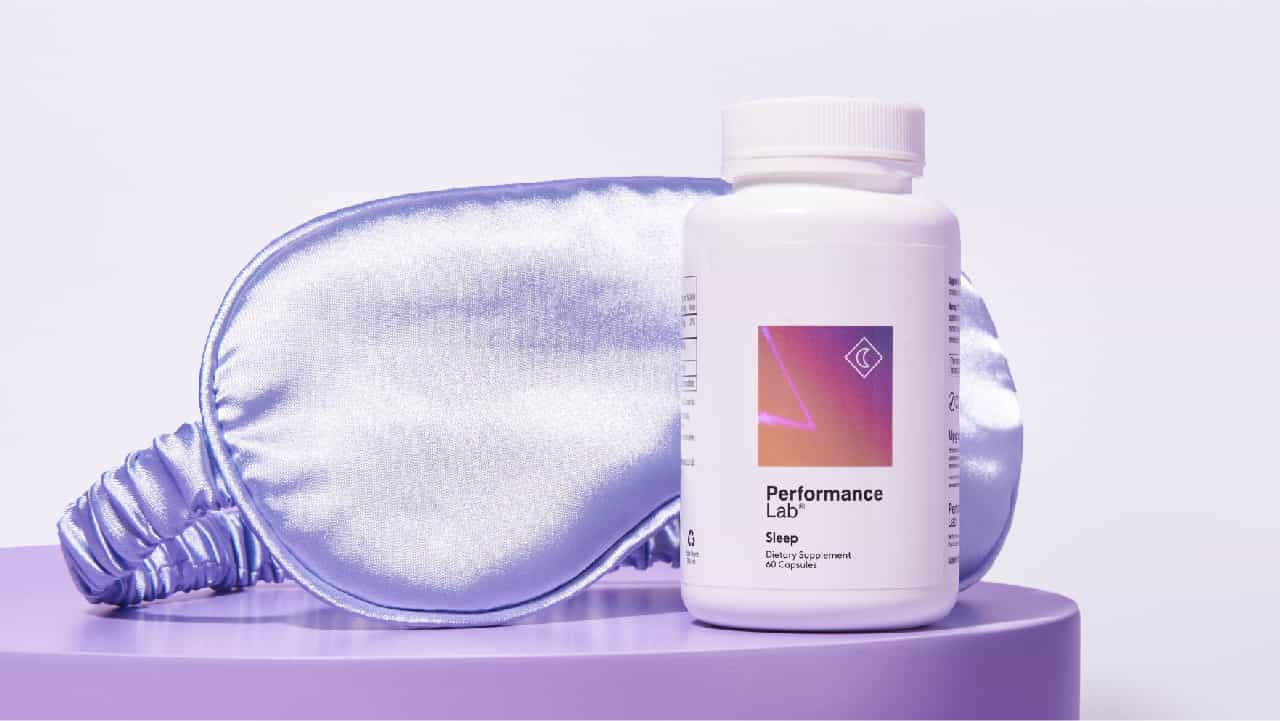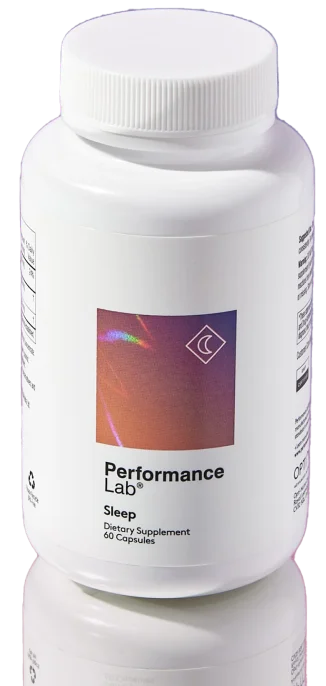The name lemon balm hints at zesty freshness and soothing calm, and this humble herb from the mint family lives up to its name. Known for its anti-stress and pro-sleep qualities, lemon balm is a popular herb that has been used in herbal medicine for centuries.
Let's learn more about it and look at its potential benefits and uses, as well as its safety record and any potential drawbacks. Providing you with the information you need to make the best choices for you...
Introduction to Lemon Balm

Lemon balm or Melissa officinalis is a calming herb from the mint family that has been used in herbal medicine since before the Middle Ages. You may also know it as English balm, sweet balm, sweet Mary, balm mint, garden balm, melissa, heart's delight and honey plant.
It is sometimes also called bee balm because it attracts honeybees, but it shouldn't be confused with Monarda didyma, another herb that shares the same nickname.
Lemon balm may not have quite the same high profile as the likes of Echinacea, St John's Wort or Valerian, but in recent years, it has become well-known - and researched - for its potential for stress relief, sleep and more.
Traditionally native to the eastern Mediterranean and western Asia, it is now naturalized around the world, and has long been unofficially used to help de-stress, promote sleep, ease digestive issues, alleviate symptoms of depression, and even help with cold sores. (1, 2, 3)
Lemon balm products come in various forms - from lemon balm cream to lemon balm herbal tea (you can make your own or buy ready-made tea bags), to lemon balm leaves, powders, liquid extract, lemon balm oil, or herbal supplements.
In this article, we'll look at the potential uses for the herb, but also make sure you understand any possible side effects. Helping you stay informed and make better choices.
Health Benefits and Uses

As I said, lemon balm in many of its forms has been used in herbal medicines for centuries. There is anecdotal evidence of its potential to reduce anxiety, mood and cognitive performance, for example, among other potential uses.
But just because it has been used in a certain way since the Middle Ages doesn't mean scientific evidence exists for all those uses. So let's look at what we can definitively say about lemon balm, according to science...
Lemon Balm May Help...
-
Tackle inflammation and oxidative stress that can damage cells and tissues, thanks to its essential oils and rosmarinic acid, a powerful anti-inflammatory and antioxidant. Oxidative stress has been linked to Alzheimer's Disease, cancer, arthritis, cardiovascular disease and more. (4, 5 6)
-
Sleep. Clinical trials have shown that taking lemon balm may help improve sleep quality, help you sleep faster, reduce sleep disturbances and, thereby, increase total sleep duration. (7, 8, 9)
-
Stress. Lemon balm may help reduce anxiety and stress by increasing levels of the neurotransmitter GABA, known to promote calm. GABA helps reduce hyperactivity in nerve cells that is associated with stress and anxiety. (10)
-
Reduce 'Bad' Cholesterol: A recent meta-analysis of lemon balm concluded that it can potentially reduce LDL cholesterol (the bad kind) while also reducing total cholesterol and triglyceride levels. (11)
-
Feelings of anxiety and depression. A meta-study into lemon balm discovered that it helped to moderately decrease feelings of anxiety and offered support for depressive symptoms. (12) You can often find lemon balm combined with valerian in natural anxiety products.
-
Digestion. Lemon balm has been shown to help mild stomach problems and relieve bloating. (13)
-
PMS symptoms and menstrual cramps. Small studies from Iran showed that PMS symptoms were reduced with lemon balm, though more research with a wider age base needs to be done. (14)
-
Reduce symptoms of cold sores. Studies show lemon balm extract may reduce the pain of cold sores caused by the herpes simplex virus and support healing more than a placebo. It should be said, however, that this wasn't tested against antivirals or prescription medications for cold sores. (15)
-
See the FAQs below for more on its potential for heart health and cognition. (Hint: promising, but not as well studied).
Lemon Balm Side Effects and Safety
Before we examine the potential side effects of lemon balm, it's worth noting that the herb has been used in its various forms in food and herbal medicine for more than 2000 years, with no reports of serious adverse effects in clinical trials.
The Safety of Lemon Balm

The Botanical Safety Handbook from the American Herbal Products Association classifies lemon balm as 'class 1', designating it as a herb that can be safely consumed when used correctly. (17) And the Food and Drug Administration include it on its GRAS list - Generally Recognised as Safe. (18)
Examine.com cites its 'excellent safety record' (16) while WebMD suggests lemon balm supplements 'are possibly safe' when taken daily at doses up to 500mg. (19)
Most people will have no problems with the herb.
That said, however, just because an ingredient is natural or from nature doesn't mean it's completely innocuous. Lemon balm may interact with certain medications, and some people may be especially sensitive to it, especially if it isn't taken at the appropriate dose.
Side Effects of Lemon Balm
In a nutshell...
-
Lemon Balm is usually well tolerated.
-
Reported side effects are usually mild.
-
Allergic reactions or hypersensitivity reactions are rare but can happen.
-
Side effects may include dizziness, wheezing, increased appetite, upset stomach and abdominal pain, vomiting, nausea, and diarrhea. These are usually mild and temporary, but in rare cases can be more severe.
-
In rare cases, lemon balm may cause headache.
-
May cause skin irritation if topical lemon balm is used on the skin.
-
Can have a sedative effect, so may reduce alertness. (20, 21)
Potential Drug Interactions
As I said earlier, it's easy to assume that herbs and medicines that come from nature won't interact with other medications or drugs, but that's not always the case. Drugs interact with each other and with natural remedies all the time.
In the case of lemon balm, for instance, it can interact with several prescription and over-the-counter drugs. Being forewarned helps you to avoid any nasty surprises, so let's take a look in more depth.
Lemon Balm potentially interacts with...
-
SEDATIVES: Lemon balm has its own sedative qualities, so mixing it with other sedatives isn't a good idea and may cause excessive sleepiness.
-
ALCOHOL: You should avoid combining lemon balm with alcohol for the same reasons as above.
-
ANTIDEPRESSANTS / SSRIs. Lemon balm may interfere with the effectiveness of these prescription medications. (22)
-
THYROID MEDICATIONS: Lemon balm may influence thyroid hormone levels, potentially interfering with any thyroid medication. (23)
-
HIV MEDICATION: The herb may also interfere with medication for HIV.
Who Shouldn't Take Lemon Balm?
As already discussed, anyone taking any of the above prescription drugs or medications should steer clear of lemon balm or ask their health professional for advice first. Anyone with an overactive or underactive thyroid should be especially careful because of its potential to influence levels of the thyroid hormone.
People with glaucoma should also first seek medical advice as lemon balm can potentially influence intraocular pressure. (24)
Lemon balm is still under-researched for pregnant or breastfeeding women, so we'd advise them to avoid it.
Please speak to a doctor if you have any concerns or medical issues before taking lemon balm.
FAQs: Your Questions Answered.

What is the recommended dosage of lemon balm?
While there is no officially agreed dose of lemon balm, the European Medicines Agency (EMA) has published their recommended dosage for adults. They suggest:
-
For herbal tea: 1.5–4.5g of the herb (in 150 ml of boiling water), 1-3 times a day
-
For powder: 0.19–0.55g, 2 to 3 times a day.
-
For liquid extract: 2-4ml, 1-3 times a day.
-
For a tincture: 2-6ml, 1-3 times a day.
To see how each form is made and specified, see the EMA list here.
You may find lemon balm extracts tailored to one or more of their constituent parts, such as rosmarinic acid. Herbal tea made with lemon balm, for example, will typically contain around 11mg of the acid per half cup of tea. Dried lemon balm leaves contain approximately 4-86mg of the acid per gram. (25)
As we heard above, lemon balm supplements are believed to be safe at levels of up to 500mg a day.
Can I drink lemon balm tea daily?
Yes, as mentioned above, the EMA recommends drinking no more than 1-3 cups of lemon balm tea a day. If you find it difficult to assess recommended quantities of lemon balm, taking a supplement might be an easier, straightforward option.
Can you overdose or get withdrawal symptoms on lemon balm?
According to the EMA, there were no reported overdoses of lemon balm before 2013, the published date of their last report. (26)
However, there has since been a case where a patient reported to the Emergency Ward and was diagnosed with withdrawal symptoms from lemon balm two days after he stopped drinking lemon balm tea. Note that the patient drank four cups of lemon balm tea a day for three months - more than the EMA recommended daily amount. (27)
It's fair to say that withdrawal symptoms are rare, but may happen, especially if the herb is not used correctly.
In contrast, a 2024 study tested the toxicity of aqueous lemon balm extract and concluded it is not genotoxic, and there were no adverse reactions during a 90-day oral toxicity study. (28)
How does lemon balm affect the heart?

According to various studies, lemon balm may help cardiovascular health by reducing cholesterol and other lipids as well as helping to stabilise blood pressure. Lemon balm may also reduce heart palpitations. One study showed that it has the potential to change your heart rhythm or ECG. (29, 30, 31).
The majority of this research has been carried out on animals and needs to be replicated in humans before anything can be said definitively, which is why it isn't in our science-proven list of benefits above.
Anyone with heart conditions should seek professional medical advice before taking lemon balm.
Can lemon balm help with cognitive function and dementia?
A 2017 examination focusing on lemon balm and dementia/ cognition discovered that seven of eight previous studies found that lemon balm was effective at improving mood or cognition. More research is needed, however. (32)
How can I take lemon balm?
It's easy to add lemon balm to your day. The form you use will likely depend on your reason for using it or your personal preferences. If you want to use it for cold sores, for instance, you'll be able to buy lemon balm cream or a topical version to put on your skin.
Many people try lemon balm tea - either using lemon balm leaves and brewing it themselves, or by buying ready-made tea bags. You can also add the leaves or powder to your food. Lemon balm is also available as a herbal supplement or can be added to other herbs.
Can you take the lemon balm plant as a herbal supplement?
Absolutely, you can take lemon balm or melissa officinalis in supplement form. It's used in various over-the-counter medications for a range of issues, such as sleep, stress and more.
Best Lemon Balm Supplement

I said above that lemon balm is often included as a key ingredient in sleep supplements, and Performance Lab Sleep is one of the best.
A modest 200mg of lemon balm is used here for its de-stress and helpful sleep potential, and is combined with Montmorency tart cherries for natural melatonin, magnesium to relax muscles, and l-tryptophan to aid sleep further.
If you're looking for a natural supplement that may help to calm you ahead of a good night's sleep, it's a great choice.


Final Thoughts: Is Lemon Balm Safe?
Lemon balm, Melissa officinalis, comes from the mint family and has the potential to be a powerful natural aid for integrative medicine.
Homeopathic medicine has used it for centuries and considers it one of its favourite traditionally used anxiolytic botanicals (anti-anxiety herbs). The plant extracts have long been used to relieve stress and acute anxiety, alongside sleep quality and other health benefits.
While scientific research may have been slower in keeping up with its many uses, the medicinal world has now caught on and is keen to examine its potential for numerous health conditions and abilities. Everything from cognitive function to Alzheimer's Disease, as an appetite stimulant and more.
Randomized controlled trials of Melissa officinalis are ongoing, and more research into this herb can only be a good thing.
Here's what we know already, however - lemon balm has a superior safety record and has been classified as safe to use by several different national and international agencies. Side effects or adverse reactions are usually rare, mild and temporary.
Dosage is important, however, so be sure to follow the guidelines. High dosages may increase the risk of side effects. If you'd rather not work the recommended dosages out for yourself, a lemon balm supplement may be a good choice. Just follow the instructions.
As mentioned above, certain groups of people should probably avoid lemon balm altogether. And even if you don't have any pre-existing conditions or take any medication, it's always best to be careful when starting any new herbal medicine.
Start slow, allow yourself to get used to it and monitor your body's response. If you experience any side effects, discontinue use and seek medical advice if necessary.














